
A Serene Tribute: Japanese War Graves Tashkent
Discover the poignant history at Japanese War Graves Tashkent, a serene cemetery honoring the sacrifices of Japanese soldiers in Uzbekistan.
Japanese War Graves in Tashkent offer a poignant reminder of the sacrifices made during wartime. This cemetery is a tranquil space for reflection and remembrance, ideal for tourists seeking to understand the historical ties between Japan and Uzbekistan. Surrounded by lush greenery, it provides a peaceful atmosphere for visitors.
A brief summary to Japanese War Graves Tashkent
- 767G+QJP, Tashkent, Yakkasaray District, Toshkent Shahri, UZ
Local tips
- Visit during the early morning or late afternoon for a quieter experience and beautiful lighting for photos.
- Take time to read the inscriptions on the gravestones for deeper understanding of the historical context.
- Respect the solemnity of the site by maintaining a quiet demeanor and refraining from disruptive behavior.
Getting There
-
Car
If you are driving from any point in the Zarafshan Range, head towards the city of Tashkent. Take the A-373 highway, which is the main route connecting Zarafshan to Tashkent. Once you reach Tashkent, navigate to the Yakkasaray District. Use a GPS or map application to enter the coordinates 41.2644579, 69.226565 or the address '767G+QJP, Tashkent, Toshkent Shahri, Uzbekistan' to guide you directly to the Japanese War Graves.
-
Public Transportation
To use public transportation from Zarafshan Range to Tashkent, take a shared taxi or bus to Tashkent. Once you arrive at the main bus station in Tashkent, you can take a local bus or a taxi to Yakkasaray District. Look for buses heading towards the Yakkasaray area or use a taxi service. Provide the driver with the address '767G+QJP, Tashkent, Toshkent Shahri, Uzbekistan' or the coordinates 41.2644579, 69.226565. Expect to pay around 10,000 UZS for the bus and approximately 20,000 to 30,000 UZS for the taxi ride.
Discover more about Japanese War Graves Tashkent
Iconic landmarks you can’t miss
Japanese War Graves Tashkent
0.0 km
Explore the Japanese War Graves in Tashkent – a serene cemetery honoring the sacrifices of soldiers and a testament to history's lessons.
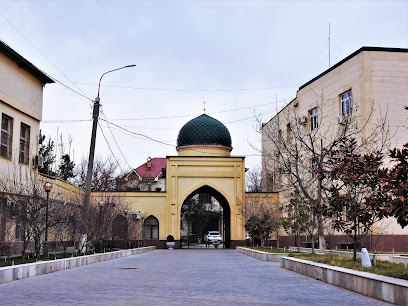
Yuri Gagarin Monument
2.2 km
Explore the Yuri Gagarin Monument in Tashkent, a striking tribute to human space exploration and a landmark of historical significance.
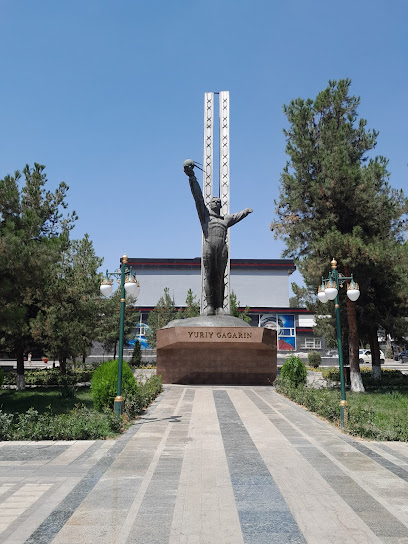
OLD Tashkent
2.9 km
Discover the beauty of Tashkent with a stay at OLD Tashkent, a perfect blend of comfort and cultural experience in Uzbekistan's capital.
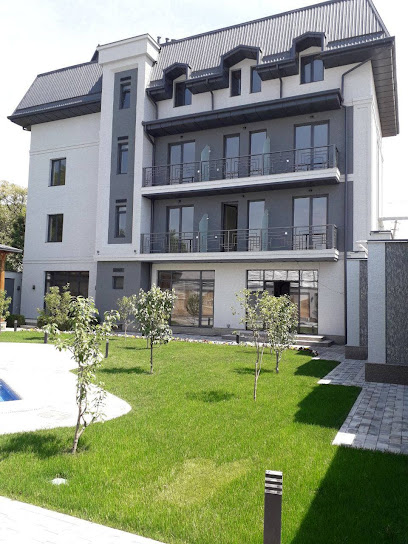
Bell of Friendship
3.7 km
Explore Tashkent's rich heritage at the Bell of Friendship, a stunning historical landmark symbolizing unity and peace among cultures.
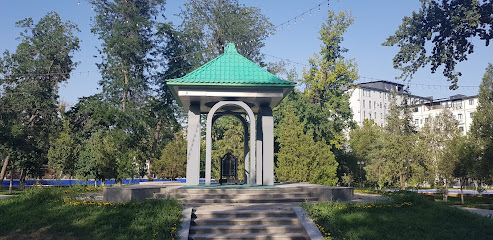
Statue of Abdulla Qahhor
4.3 km
Discover the Statue of Abdulla Qahhor in Tashkent, a remarkable homage to Uzbekistan's literary heritage and a vibrant cultural hub.
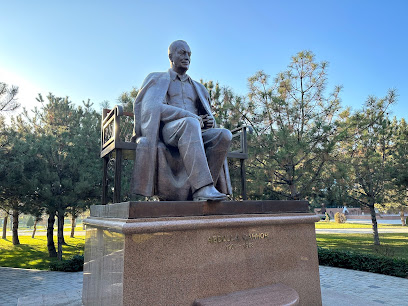
Statue of Oybek
4.4 km
Explore the Statue of Oybek in Tashkent, a cultural landmark celebrating Uzbekistan's literary heritage and artistic spirit.
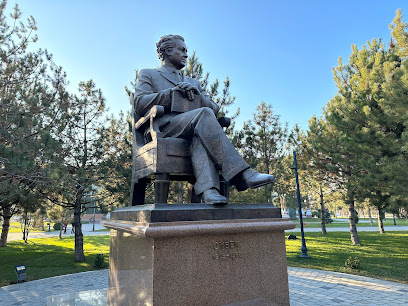
Bunyodkor Square
5.2 km
Experience the lively atmosphere of Bunyodkor Square in Tashkent, a cultural hub for events and local life in Uzbekistan's capital.
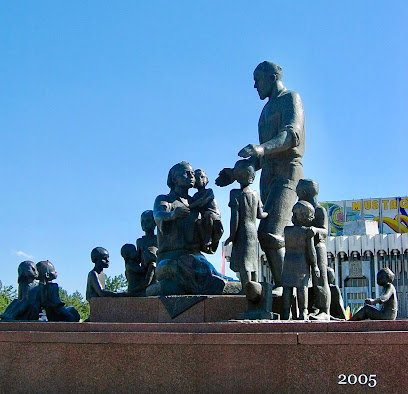
Mustaqillik Maydoni
6.6 km
Explore the vibrant Mustaqillik Maydoni, Tashkent's iconic Independence Square, a hub of culture, history, and stunning architecture.
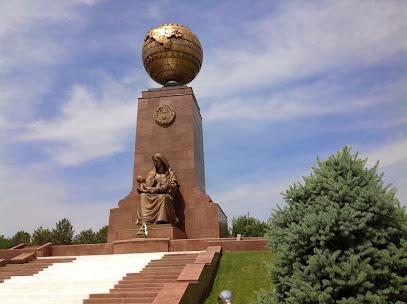
Mustakillik Square
6.6 km
Experience the vibrant culture and stunning architecture of Mustakillik Square in Tashkent, Uzbekistan's lively town square at the heart of the city.
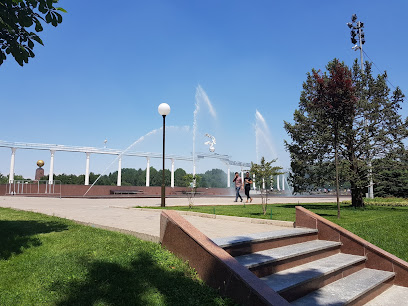
Zarafshan
6.6 km
Experience the vibrant shopping scene at Zarafshan, Tashkent's premier shopping mall, blending local culture with international retail.
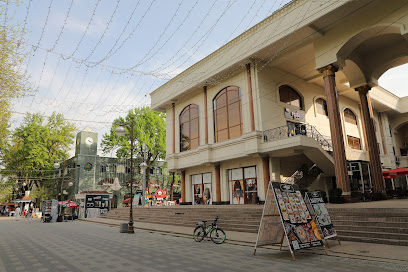
Hoja Ahror Valiy Mosque
6.6 km
Discover the serene beauty and rich history of Hoja Ahror Valiy Mosque, a cultural gem in Tashkent, Uzbekistan.
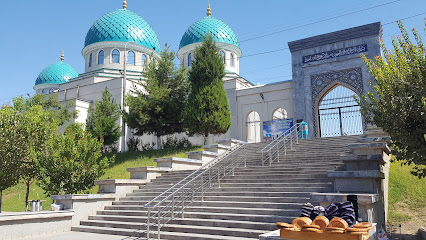
Independence Monument (Mustaqillik monumenti)
6.7 km
Explore the Independence Monument in Tashkent, a stunning symbol of freedom and a must-visit for anyone interested in Uzbekistan's rich history.
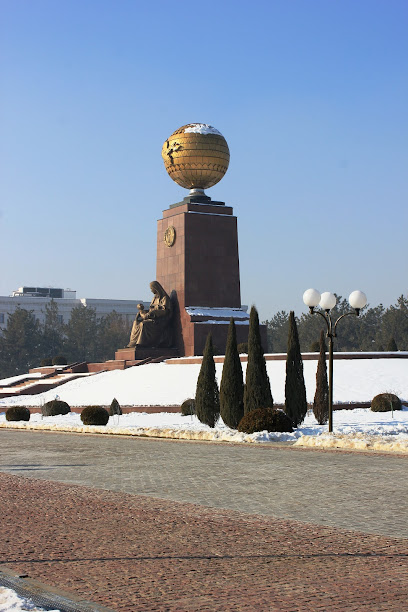
House of Photography
6.7 km
Explore the rich visual heritage of Uzbekistan at the House of Photography, a cultural gem in Tashkent showcasing stunning photographic art.
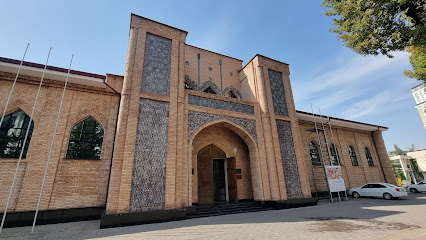
Шайхонтохур дарвоза
6.8 km
Discover the historical charm of Shaykhontohur Darvoza, Tashkent's iconic gateway showcasing the rich cultural heritage of Uzbekistan.
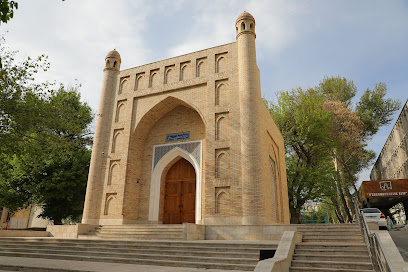
Amir Temur Monument
6.8 km
Discover the grandeur of the Amir Temur Monument in Tashkent, a historical landmark honoring the legendary conqueror and a symbol of Uzbek pride.
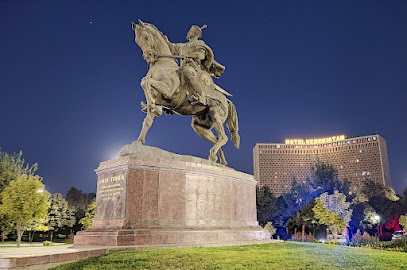
Unmissable attractions to see
Do’stlik Recreational Park
3.6 km
Discover the natural beauty and vibrant atmosphere of Do’stlik Recreational Park, a serene escape in Tashkent, Uzbekistan for relaxation and recreation.
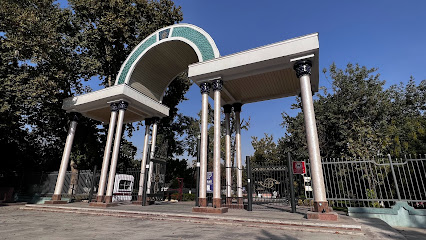
Seattle Peace Park
3.7 km
Experience serenity at Seattle Peace Park in Tashkent, where art meets nature in a tranquil oasis perfect for relaxation and reflection.
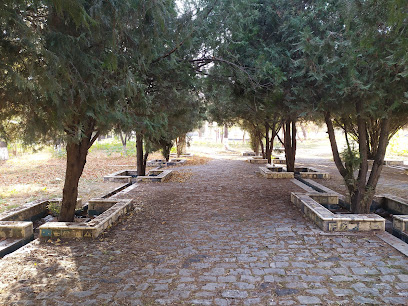
Shota Rustaveli haykali
3.7 km
Explore the cultural gem of Shota Rustaveli Haykali, a stunning tribute to the renowned Georgian poet in Tashkent's vibrant urban landscape.
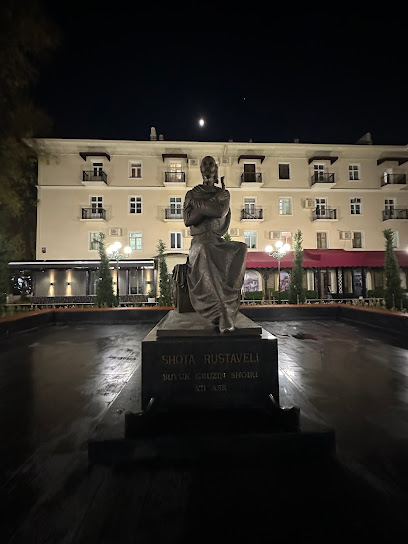
Erkin Vohidov Monument
4.3 km
Explore the Erkin Vohidov Monument in Tashkent, a stunning tribute to the influential poet, surrounded by beautiful gardens and rich cultural heritage.
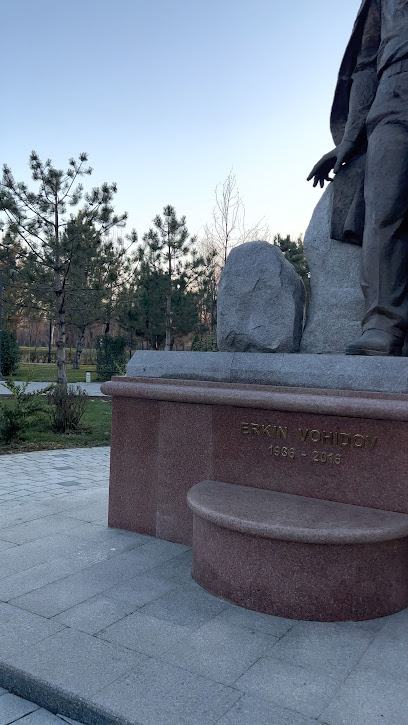
Milliy bog' (National Park)
4.3 km
Explore the lush landscapes and tranquil escape of Milliy bog' National Park in Tashkent, a perfect getaway for nature lovers and adventure seekers.
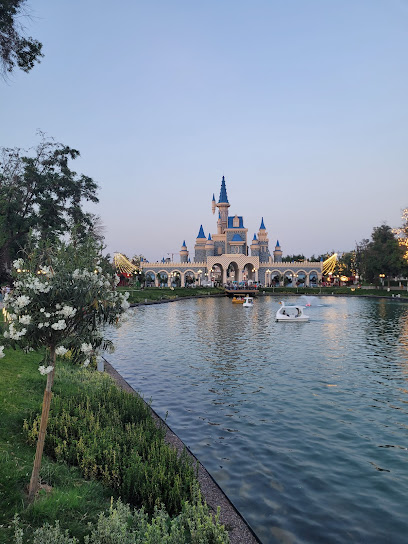
Alley of Writers
4.5 km
Discover the rich literary heritage of Uzbekistan at the Alley of Writers in Tashkent, where culture and tranquility meet.
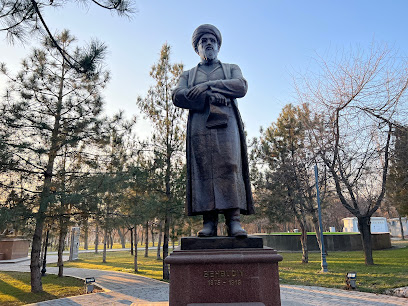
Alisher Navoi Monument
4.5 km
Explore the Alisher Navoi Monument in Tashkent, a stunning tribute to Uzbekistan's literary heritage surrounded by serene gardens and rich culture.
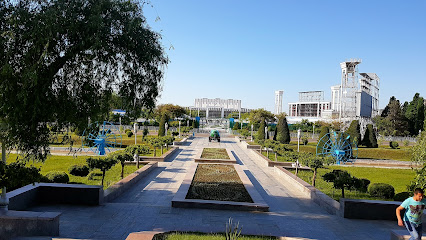
National Park of Uzbekistan named after Alisher Navoi
4.6 km
Explore the lush landscapes of the National Park of Uzbekistan named after Alisher Navoi, a tranquil oasis in Tashkent for nature lovers and culture seekers alike.
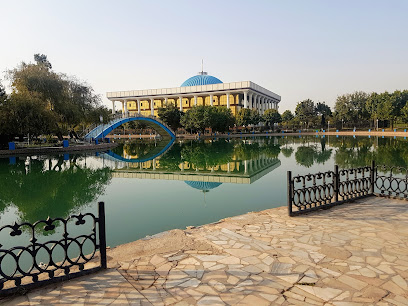
Fanikl
4.7 km
Explore Fanikl, a captivating tourist attraction in Tashkent, where rich culture, warm hospitality, and stunning landscapes await your discovery.
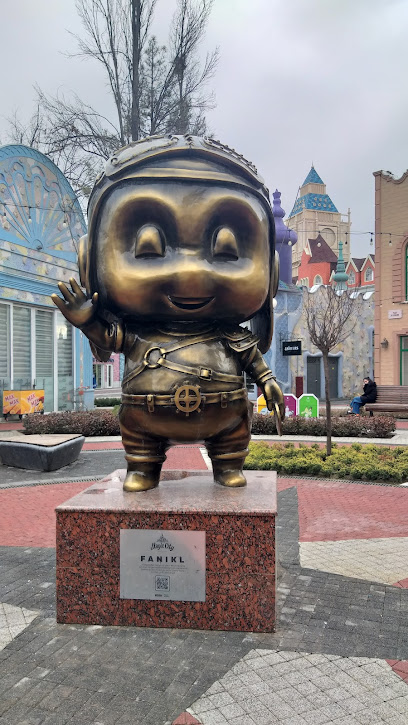
Magic park
4.7 km
Experience the thrill and magic of Magic Park in Tashkent, a premier amusement park with rides, games, and unforgettable family fun.
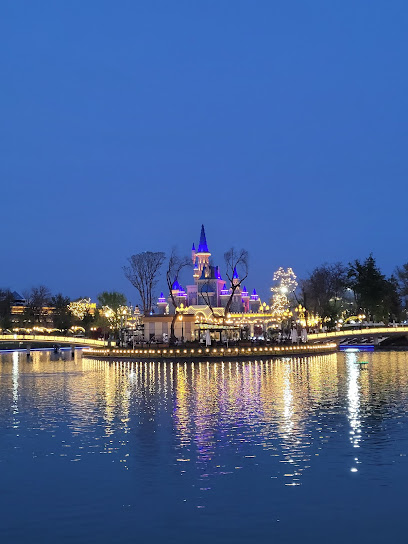
Magic City Park
4.7 km
Experience the joy of Magic City Park, Tashkent's ultimate amusement destination with thrilling rides, stunning gardens, and unforgettable family fun.
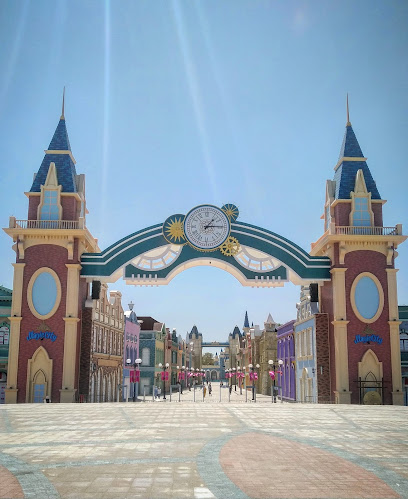
Madrasah of Abdulkasim Sheikh
4.8 km
Explore the architectural marvel of Madrasah of Abdulkasim Sheikh, a historical landmark reflecting Uzbekistan's rich cultural heritage and Islamic artistry.
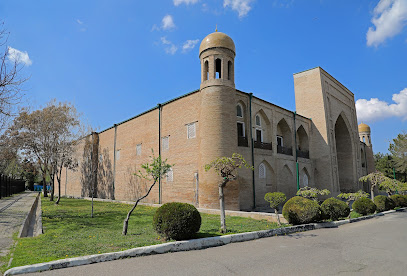
Luna park
4.8 km
Experience the joy of thrill rides and family fun at Luna Park, Tashkent's ultimate playground for adventure seekers of all ages.

Museum of Applied Arts
4.9 km
Explore the Museum of Applied Arts in Tashkent and immerse yourself in the stunning world of Uzbek craftsmanship and cultural heritage.
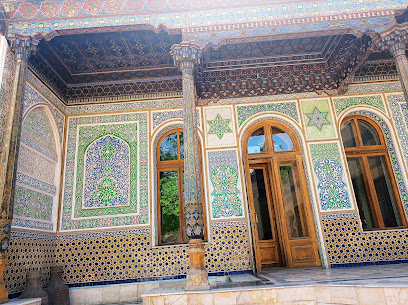
State Museum of Nature of Uzbekistan
4.9 km
Explore the State Museum of Nature of Uzbekistan in Tashkent, a hidden gem showcasing the country's rich biodiversity and natural history.
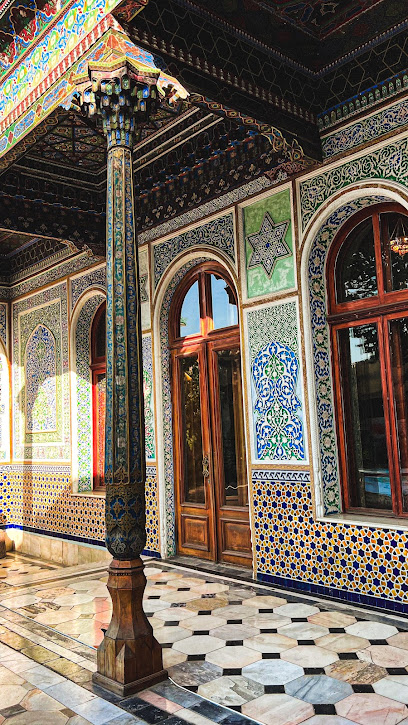
Essential places to dine
Karimbek
1.6 km
Discover the flavors of Uzbekistan at Karimbek – where tradition meets taste in the heart of Tashkent.
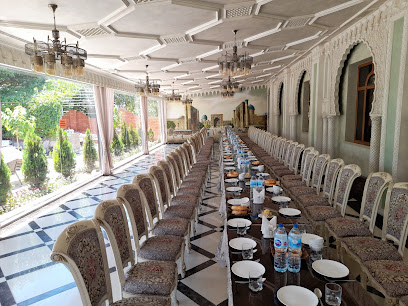
Prestizh
1.8 km
Discover the essence of Uzbek cuisine at Prestizh in Tashkent - a perfect blend of tradition and modernity awaits you.

Qanotchi
2.1 km
Discover Qanotchi in Tashkent - where succulent meats meet traditional Uzbek hospitality for an unforgettable dining experience.

Česka Dudek
2.2 km
Discover authentic Uzbek cuisine and vibrant nightlife at Česka Dudek in Tashkent – where tradition meets modern dining.

Resto Forn Lebnen & Chillax Lounge
2.5 km
Discover the authentic taste of Lebanese cuisine at Resto Forn Lebnen & Chillax Lounge in Tashkent, where vibrant flavors meet warm hospitality.

Ramenhouse
2.7 km
Discover the authentic flavors of Uyghur cuisine at Ramenhouse in Tashkent – a culinary delight for every traveler.
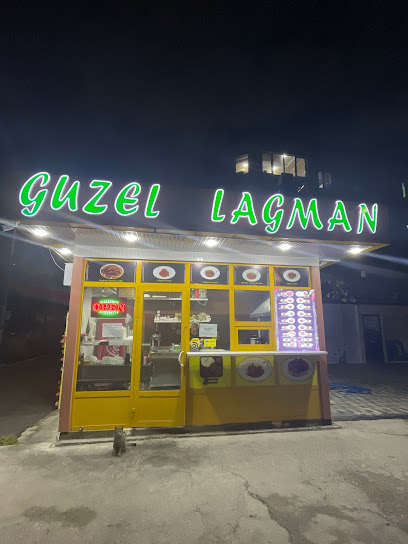
Fillet Restaurant
3.4 km
Experience exquisite dining at Fillet Restaurant in Tashkent, where traditional flavors meet modern culinary artistry.
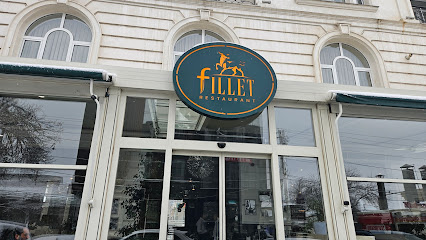
Bosphorus Restaurant
3.4 km
Discover the authentic flavors of Turkey at Bosphorus Restaurant in Tashkent – where every dish tells a story.

Caravan
3.5 km
Experience the best of Uzbek and international cuisine at Caravan in Tashkent - perfect for families and food lovers alike.
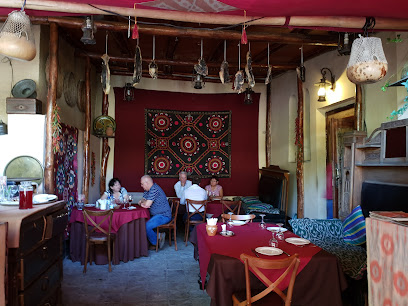
Gruzinskiy Dvorik
3.5 km
Experience authentic Georgian cuisine at Gruzinskiy Dvorik in Tashkent—where flavor meets tradition in every dish.
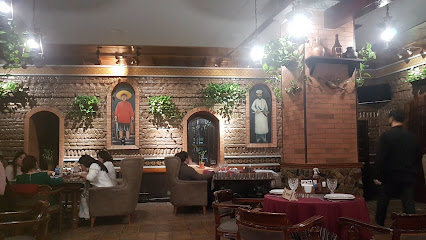
Parmuda.uz
3.6 km
Explore authentic Uzbek cuisine at Parmuda.uz - a family-friendly haven in Tashkent offering delicious meals for every palate.

Bellagio Restoran
3.6 km
Experience authentic Uzbek cuisine at Bellagio Restoran in Tashkent – where tradition meets taste in every dish.
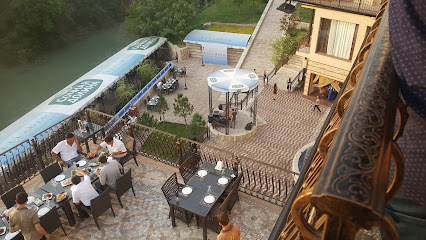
Affresco
3.9 km
Discover authentic Italian cuisine at Affresco in Tashkent—where every meal feels like a trip to Italy.
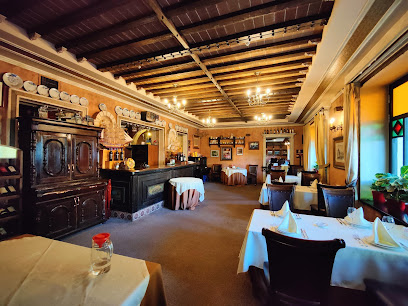
MEATme Grill & Bar
4.0 km
Experience mouthwatering grilled delicacies at MEATme Grill & Bar in Tashkent – where every meal is a celebration of flavor.

Pasado
4.1 km
Experience the rich flavors of Uzbekistan at Pasado – where tradition meets modern dining in Tashkent.
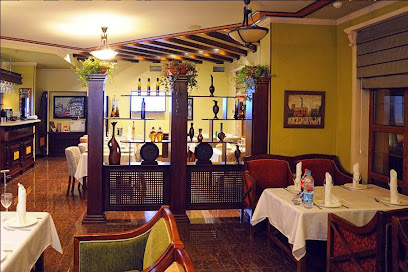
Markets, malls and hidden boutiques
Mall “Vega”
0.6 km
Explore Mall 'Vega' in Tashkent for an unforgettable shopping and dining experience, blending local culture with international flair.

Malika Shop
1.5 km
Explore the vibrant world of women's fashion at Malika Shop in Tashkent, where local style meets contemporary trends.

Chilanzar Shopping Center
2.1 km
Discover shopping bliss and family fun at Chilanzar Shopping Center in Tashkent, a premier destination for retail and entertainment.

Paris Bijuteriya
2.2 km
Explore the vibrant fashion scene at Paris Bijuteriya, Tashkent's premier women's clothing store offering unique styles and quality apparel.

Miniso Magnum
2.3 km
Discover a vibrant world of stylish gifts, home décor, and unique gadgets at Miniso Magnum in Tashkent, where every item tells a story.

Chilanzar Bazaar
2.4 km
Discover the vibrant Chilanzar Bazaar in Tashkent, where the essence of Uzbek culture and culinary delights come alive amidst bustling market stalls.
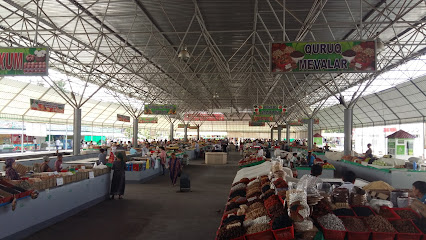
Turist shop
2.5 km
Explore the vibrant Turist Shop in Tashkent for unique clothing and souvenirs reflecting Uzbekistan's rich cultural heritage.

Bella kiss Chilanzar
2.6 km
Explore the vibrant fashion scene at Bella Kiss Chilanzar, a leading clothing store in Tashkent, featuring stylish apparel and exceptional service.

Chilanzar
2.7 km
Discover the vibrant culture and local charm of Chilanzar in Tashkent, Uzbekistan, a must-visit destination for an authentic experience.
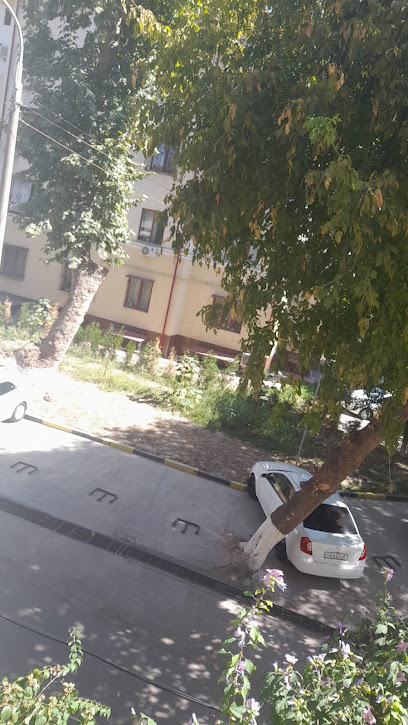
Akpen
2.7 km
Explore the unique offerings of Akpen in Tashkent, where local craftsmanship meets warm hospitality for an unforgettable shopping experience.

Oikos -Uzbekistan
2.7 km
Experience the vibrant shopping scene at Oikos in Tashkent, where local crafts meet international brands in a modern retail setting.
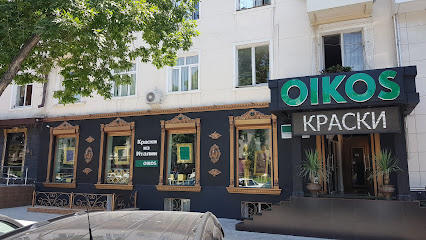
Black house
2.9 km
Explore Black House in Tashkent for a fusion of modern fashion and traditional Uzbek design, making it a unique shopping experience.

AMERICA VS FAMILY&STORE
3.0 km
Discover a unique shopping experience at AMERICA VS FAMILY&STORE in Tashkent, where local culture meets modern retail in a vibrant atmosphere.

The Stil'
3.3 km
Explore Tashkent's vibrant fashion scene at The Stil', a modern clothing store offering unique styles and local flair.

Zhakhongirov Zhavokhir
3.4 km
Explore Zhakhongirov Zhavokhir in Tashkent for authentic local products and a taste of Uzbek culture in a vibrant shopping atmosphere.

Essential bars & hidden hideouts
Panda Karaoke
2.1 km
Experience the vibrant nightlife of Tashkent at Panda Karaoke, where singing, hookah, and arcade fun await your arrival.

Sir Richard's pub
2.1 km
Discover the lively atmosphere of Sir Richard's Pub, a perfect blend of local culture and international flavors in Tashkent, Uzbekistan.

Onetime
2.3 km
Experience the vibrant nightlife of Tashkent at Onetime, a lively karaoke bar perfect for unforgettable nights filled with music and fun.
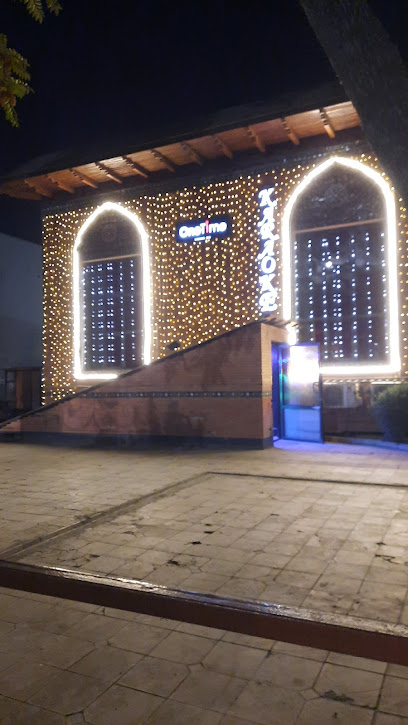
Castle Bar
2.4 km
Discover the charm of Castle Bar in Tashkent, where cozy ambiance meets a delightful selection of drinks and local culture for an unforgettable experience.
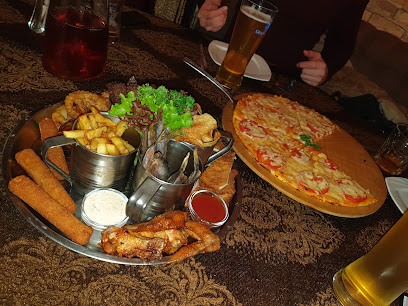
Guten Pub
2.4 km
Discover the vibrant atmosphere of Guten Pub in Tashkent, where traditional Uzbek hospitality meets modern nightlife.

IZMIR
2.8 km
Discover the lively nightlife of Izmir, where every bar offers a unique blend of culture, flavor, and unforgettable experiences.

Oliver Pub-Bar
3.2 km
Discover the vibrant nightlife at Oliver Pub-Bar in Tashkent, offering local drinks, live music, and a warm atmosphere for unforgettable evenings.

Fenix
3.3 km
Experience Tashkent's vibrant nightlife at Fenix, a cozy bar offering a unique selection of drinks and a friendly atmosphere for all.

Ye Old Chelsea Arms
3.5 km
Discover the vibrant nightlife and local flavors at Ye Old Chelsea Arms, Tashkent's charming pub for travelers.
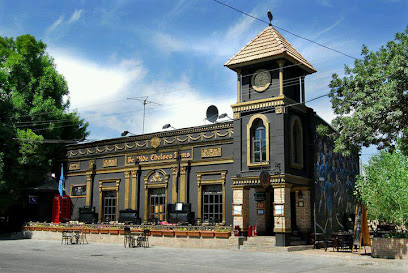
London Pub
3.5 km
Discover the vibrant nightlife of Tashkent at London Pub, where local brews meet international flavors in a lively atmosphere.
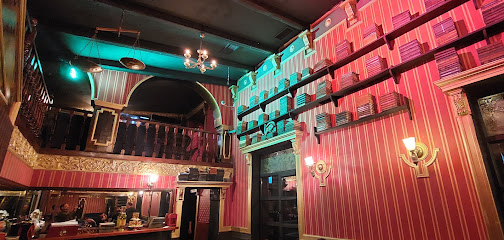
John Dillinger Bar
3.7 km
Discover the vibrant John Dillinger Bar in Tashkent, a live music haven for tourists seeking a taste of local entertainment and nightlife.

Chestniy Bar
3.8 km
Experience the vibrant nightlife at Chestniy Bar in Tashkent, where captivating drinks and a lively atmosphere await every visitor.
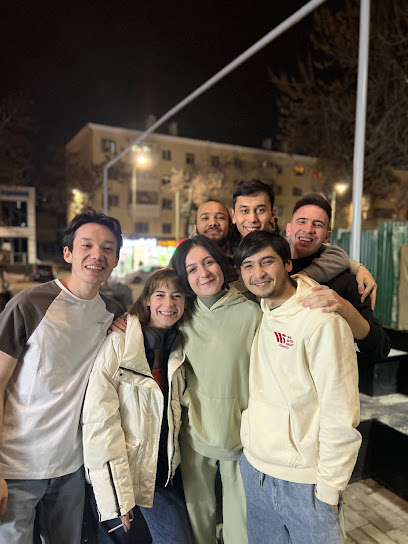
The Mayfair Pub
4.5 km
Discover the vibrant flavors and inviting atmosphere of The Mayfair Pub, a must-visit bar and restaurant in Tashkent, Uzbekistan.

Gravity bar
4.5 km
Experience Tashkent's skyline like never before at Gravity Bar, where stunning views meet vibrant nightlife and delightful drinks.

BarON
4.5 km
Discover BarON in Tashkent: A vibrant bar offering unique cocktails and a cozy atmosphere, perfect for unwinding after a day of exploration.
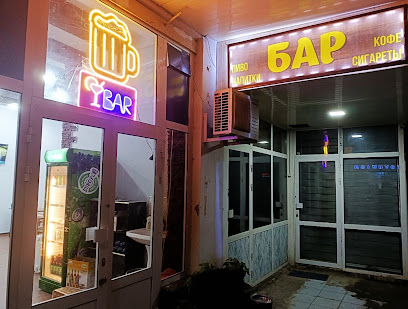
Nightclubs & after hour spots
Friends Club
1.9 km
Discover the lively atmosphere of Friends Club, Tashkent's premier karaoke bar, where music and fun come together for an unforgettable night.

Lavoo Tashkent hookah bar
2.6 km
Discover the vibrant nightlife of Tashkent at Lavoo Hookah Bar, where exotic flavors and lively music create unforgettable memories.

Paris night club
2.9 km
Discover the electrifying nightlife of Tashkent at this vibrant night club, where music, dancing, and fun await you!

Nochnoy Klub Aleksandry Vladimirovny
3.5 km
Discover the lively nightlife of Tashkent at Nochnoy Klub Aleksandry Vladimirovny, where music, dance, and unforgettable memories await!

Sheraton
4.1 km
Discover the vibrant nightlife at Sheraton Night Club in Tashkent, where music, dance, and unforgettable memories await.
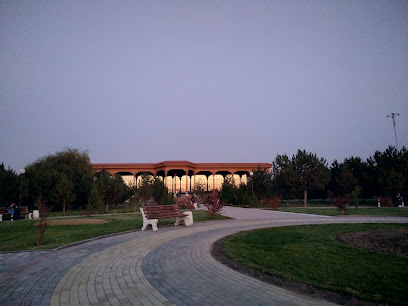
Lusiana Disco Tashkent
4.1 km
Lusiana Disco Tashkent: A vibrant nightlife hotspot blending local culture with electrifying entertainment.
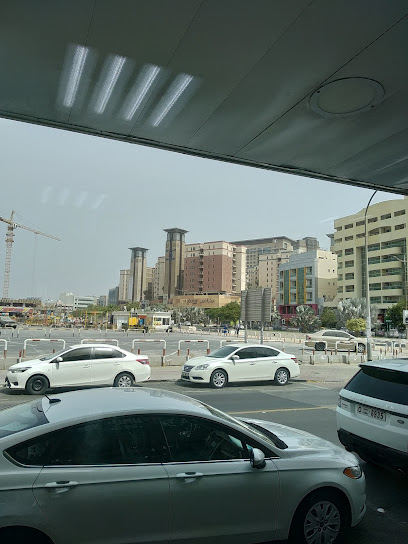
WOLF Night club
4.7 km
Discover Tashkent's nightlife at WOLF Night Club, where electrifying music and an energetic atmosphere create unforgettable nights.
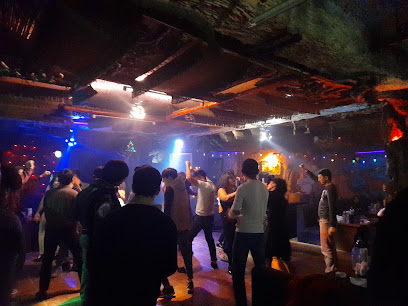
Zara Resto Bar
4.8 km
Experience the vibrant nightlife at Zara Resto Bar in Tashkent, offering a mix of local cuisine and energetic entertainment until dawn.

BOSS NIGHT CLUB
5.1 km
Immerse yourself in Tashkent's nightlife at BOSS Night Club – where music, dance, and vibrant energy come together for an unforgettable experience.

Miami Night Club
5.2 km
Discover Miami Night Club in Tashkent for an electrifying nightlife experience filled with music, dancing, and great company.

Make Some Noise - Karaoke Club
5.4 km
Experience the vibrant nightlife of Tashkent at Make Some Noise Karaoke Club, where singing and laughter come together for an unforgettable evening.

Ночной клуб БIБЛIОТЕКА
8.2 km
Discover Tashkent's dynamic nightlife at Biblioteka Night Club, where electrifying music and stylish vibes create an unforgettable party experience.

Bootlegger
8.3 km
Experience the vibrant nightlife of Tashkent at Bootlegger, the ultimate night club for music, dancing, and unforgettable memories.

Shambala
8.5 km
Experience the vibrant nightlife of Tashkent at Shambala, the ultimate disco club for unforgettable dancing and socializing.

CMI bar
8.8 km
Discover Tashkent's nightlife at CMI Bar, offering exquisite cocktails and a vibrant atmosphere for an unforgettable experience.




